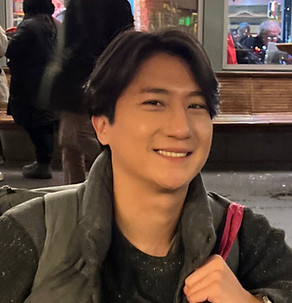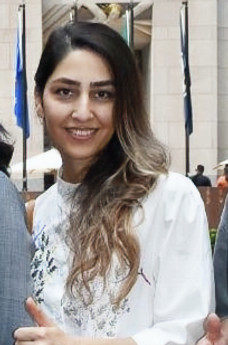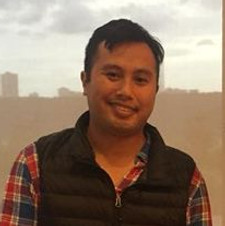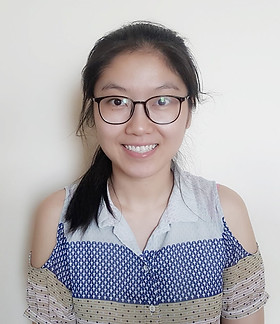Dieter Egli

I received my PhD training in Switzerland from the University of Zurich. After postdoctoral training at Harvard University, I became a group leader at the New York Stem Cell Foundation Research Institute and then a principal investigator and Associate Professor at Columbia University Irving Medical Center in New York City.
I am enthusiastic about science, fundamental biology, and our opportunity to find cures through exciting new discoveries. The opportunities to make important contributions to science and medicine for students, postdocs and fellows are extraordinary. I very much mentor on a 1:1 basis, and I am thrilled to see each of us grow into well rounded scientists.
We have a great team of scientists, consider joining us!
For all our publications, see here.

LAB MEMBERS
Stepan Jerabek

Stepan. Jerabek, PhD
Stepan is a research scientist who joined the Egli laboratory in the spring of 2022. He completed his doctoral studies at Max Planck Institute for Molecular Biomedicine in Münster, Germany, where he was mentored by Dr. Hans R. Schöler. Later, he continued as postdoctoral fellow in the laboratory of Dr. George M. Church at Harvard Medical School. Currently, Stepan holds a joint appointment with Columbia University and Institute of Organic Chemistry and Biochemistry (IOCB) Prague. Stepan is interested in early human development, stem cell biology, genome engineering, and gene therapy. Stepan enjoys playing tennis, traveling, and hiking.
Euihyun Kim

Euihyun Kim is a postdoctoral fellow who joined us from South Korea in 2025. He is an expert in somatic cell nuclear transfer and has an interest in early mammalian development. He loves to play golf, to swim and do carpentry.
Xiangyi Liu

Xiangyi Liu is a Research Assistant with a Masters in Biotechnology, working on the origin of DNA replication stress in early embryonic development.
She has published a review in Current Opinion in Genetics and Development!
Maryam Mirahmad

Maryam is a postdoctoral fellow working on beta cell differentiation and immune tolerance for stem cell based therapy in T1D. Maryam earned her MD from Tehran University of Medical Sciences in Iran. In her free time, she enjoys playing boardgames and baking cakes.
Shuangyi Xu

Shuangyi Xu is a PhD student since 2022 with a Master's degree in Biotechnology from Columbia University, and then became a Research Assistant at Columbia University Medical Center. She has presented her work on DNA breakage in human embryos, at ISSCR 2022, contributing to a paper now published in Cell,
In her PhD, Shuangyi is interested in early mammalian development, genome organization, DNA replication timing, chromosome fragility, evolution, and genetic disorders.
Shuangyi has discovered that DNA replication and genome stability follow a pattern in mammalian embryos starting from the first cell cycle. Now published open access in Nature Communications!
Sakshi Bhatele
.jpg)
Sakshi joined us in 2023 as a staff associate to work on modeling diabetes using pluripotent stem cells. Her first differentiation from stem cells to beta cells gave her 50% insulin positive cells! She exels in modifying stem cells genetically, cell differentiation and analysis. Her aspiration is to join an outstanding PhD program.
Ning Wang


Ning Wang received his BS and his PhD in Northwest A&F University, China. He was a visiting PhD student from Northwest A&F University on a China scholarship council fellowship, and is now a postdoctoral fellow.
Ning is interested in how the brain regulates body weight and the mechanisms leading to obesity. He is using stem cell models of Prader-Willi syndrome. To gain a better understanding, he studies stem cell differentiation, DNA replication and imprinting.
Ning is also interested in development and somatic cell reprogramming. He discovered DNA replication stress in mammalian embryos in the first cell cycle of development.
In somatic cell reprogramming, he showed that replication gap suppression is not required for reprogramming (PMID:39554279).
Check out Nings cutting edge work in this study published in Cell.
Alumni
Qian Du

Vicky (Qian) Du is a postdoctoral fellow who joined us in October 2019. She is a doctor and has a medical degree from Xiangya School of Medicine, and masters degrees in Gerontology from the University of Southern California and in Biotechnology from Columbia University.
Vicky found that ZNT8 deficiency in human stem cell derived beta cells protects against cell death. PMID: 36980244
She has an interest in stem cell therapy, diabetes, metabolism.
Vicky also has been playing the piano since very young age, Chopin is her favorite. She also loves reading Sir Arthur Conan Doyle's and Agatha Christie's books.
Michael Zuccaro

Michael received his BS in Biotechnology and Genomics and MBS from Rutgers University. Michael is interested in the mechanisms that determine stable ploidy. Why are we diploid, not haploid or tetraploid? And why do some cells, such as in the placenta make ploidy transitions anyway?
Michael has received his PhD in the summer of 2021.
Publications: Inter-homologue repair in fertilized human eggs? Nature 2018
"Distinct Imprinting Signatures and Biased Differentiation of Human Androgenetic and Parthenogenetic Embryonic Stem Cells" Cell Stem Cell 2019.
Check this out!
Allele Specific Chromosome Removal after Cas9 Cleavage in
Human Embryos. Cell. 2020. PMID: 33125898
This breakthrough discovery shows that Cas9 cleavage can result in the loss of a chromosome and that human embryos are very prone to such errors, far more so than other mammals or cultured cells.
You can enjoy Mike's presentation at the Harvard Genome Engineering seminar here:
Morgan Smith

Morgan is a Research Assistant who joined us in September 2019. Morgan studies how stem cell derived beta cells can be protected from autoimmunity in type 1 diabetes.
Morgan joined us coming from Florida and loves diving and science.
Contribution to:
Allele Specific Chromosome Removal after Cas9 Cleavage in
Human Embryos. Cell. 2020. PMID: 33125898
Yuwei Zhang

Yuwei uses human pluripotent stem cell models to understand the mechanisms of T1D risk. More broadly, she is interested in developmental biology and pluripotent stem cells.
Yuwei is an exchange PhD student with a China Scholarship Council award.
Yuwei published a stem cell model of insulin misfolding mutations.
Jenna Turocy, MD

Jenna is a postdoctoral clinical fellow interested in the mechanisms and consequences of chromosome loss in the human preimplantation embryo. Read Jennas review on heritable gene editing in Cell
Also check out her BiorXiv preprint on the mechanisms of chromosome loss after DSB induction.
Alejandro de los Angeles

Alejandro de los Angeles is interested in the mechanisms of embryonic
aneuploidy during human early development. He has a BS/MS in Biology from Stanford University and has received a Fulbright Scholarship. He did his PhD at the University of Oxford, UK.
Alejandro investigated sites of DNA breakage in human embryos, and published his work in this study in Cell.
Alejandro is actually from Los Angeles.
Katherine Palmerola, MD

Kat is an ObGyn fellow interested in the molecular mechanisms determining developmental potential at preimplantation stages.Kat is now a fertility specialist at a fertility clinic in Miami, FL.Kat showed mechanisms of DNA damage in human embryos and how replication stress is affecting development in this paper published in Cell.
Lina Sui, PhD

Dr. Sui received her Ph.D in Biomedical Science in 2012 from Diabetes research center of Vrije Universities Brussel. Dr. Sui joined Dr. Dieter Egli’s lab in Columbia University Medical Center in 2014 for postdoctoral training. Lina showed how human stem cell derived beta cells from a patient with diabetes can fully protect a mouse from diabetes. PMID: 28931519.
Lina's most recent paper shows highly efficient differentiation of stem cells to insulin producing cells and control of graft growth after transplantation. Her work suggests a physiological role of fragile sites in regulating growth potential. PMID:33529174.
Lina's following position is as a senior scientist at Century Therapeutics in Philadelphia.
Daniela Georgieva, PhD

Daniela completed her graduate studies in the Integrated Program at Columbia University. Her interests include DNA repair and reprogramming.
Her PhD project was to dissect BRCA1 functions in reprogramming. She found that increasing HDR through inactivation of 53BP1 increases reprogramming. PMID:38554279
Daniela also developed a novel method to sequence and identify replicated DNA using pore sequencing. PMID:32710620
Daniela is currently a senior scientist at MOMA Therapeutics in Boston.
Selma Amrane, MD
Selma completed her Postdoctoral Clinical Fellowship in the Department of Obstetrics and Gynecology in 2020. She is interested in the mechanisms of micronuclei formation in human embryos and in embryonic aneuploidy.
Selma is now a private practice physician in Maryland.
She made a key contribution to this paper in Cell, showing that micronuclei in human embryos are the consequence of DNA replication stress.

Bryan J. Gonzalez, PhD

Bryan was a graduate student in the Nutrition Program at Columbia University. He is interested in understanding monogenic forms of diabetes, especially maturity-onset diabetes of the young (MODY). His research “Stem cell-derived beta-cells to model Diabetes due to HNF1a deficiency” was presented at the IHN’s 2015 Wu Lecture, where he was selected as one of two recipients of the Marija Chouinard Award for Excellence in Research. He also received the Acres of Diamonds Award as a winner in the national abstract competition and for distinction in the oral presentations in 2016 at the Minority Trainee Research Forum. He is a graduate of the University of Lausanne, Switzerland, with a master's degree in Medical Biology.
Bryan established a stem cell model to study diabetes caused by HNF1A deficiency. Read the article in Communications Biology.
Bryan also published a letter in Cell Stem Cell on the safety of universal pluripotent stem cells. Bryan landed a great job at Fork & Goode in Brooklyn.
Giacomo Diedenhofen

Giacomo was a visiting MD student from the University of Rome. He is interested in autoimmune mechanisms. He published a paper with the Ciccia lab on enhancing double strand break repair in stem cells: PMC6667477
Mitsutoshi Yamada, MD, PhD

Dr. Mitsutoshi Yamada, MD, PhD, performed his postdoctoral studies in the Egli lab from 2013-2015 at The New York Stem Cell Foundation Research Institute. Mitsutoshi is now an Assistant Professor at the Keio University School of Medicine, Tokyo, Japan.
Publications:
Genetic Drift Can Compromise Mitochondrial Replacement by Nuclear Transfer in Human Oocytes. PMID: 27212703
Human oocytes reprogram adult somatic nuclei of a type 1 diabetic to diploid pluripotent stem cells. Nature. 2014. PMID: 24776804
Genome Transfer Prevents Fragmentation and Restores Developmental Potential of Developmentally Compromised Postovulatory Aged Mouse Oocytes. PMID: 28242217
Bjarki Johannesson, PhD

Gloryn Chia le Bin, PhD

Gloryn performed her postdoctoral studies in the Egli lab as a fellow funded by the A*STAR international fellowship. Her work focused on genetic instability after reprogramming
Publications: Genomic instability during reprogramming by nuclear transfer is DNA replication dependent. This publication demonstrates a link between cell identity and genetic stability. PMID:28263958
Gloryn is now an Assistant Professor at the Department of Pharmacy, National University of Singapore.
Daniel Kort, MD

Dr. Daniel Kort, MD, was an ObGyn fellow studying chromosome segregation errors in preimplantation development.
Human embryos commonly form abnormal nuclei during development: a mechanism of DNA damage, embryonic aneuploidy, and developmental arrest. Dr. Kort's study shows that micronucleation is equivalent to mitotic aneuploidy. It also shows that markers of DSB damage and repair are very common in human embryos.
Human Reproduction. 2016. PMID:26621855
Daniel Paull, PhD

Dan did his postdoctoral studies in the Egli lab from 2011-2013.
His studies were on mitochondrial replacement in human oocytes. PMID:23254936
Dr. Paull then became the Vice President of Automation systems and Stem Cell Biology at the NYSCF-Research Institute
Linshan Shang, PhD

Linshan was a postdoctoral fellow in the Egli lab from 2010 to 2013. She studied Wolfram syndrome, a rare and lethal form of diabetes in a stem cell model of human disease.
PMID: 24227685
Her study is the first stem cell model of diabetes reported.
Shuangyu Ma, PhD

Shuangyu Ma received her BS in Jilin University, China. She is a visiting graduate student from China Agricultural University, Beijing.
Shuangyu showed the correction of a diabetes-causing mutation at the insulin locus in patient specific stem cells, restoring beta cell function. Transplantation of the gene corrected cells protects mice from diabetes. The use of autologous cells for non-immune mediated forms of diabetes provides a path to beta cell replacement without the need for immune protection.
Shuangyu is the recipient of a scholarship of the China Scholarship Council.
Lauren Zakarin, MD
.jpg)
Lauren, ObGyn fellow at CUMC, showed that SNPs can be edited efficiently in haploid human pluripotent stem cells. PMID:32162131
She also published a study on the experience of oocyte donors participating in research. PMID: 29872942
Ryan M. Viola

Ryan was the lab manager for the Egli lab. His research interests included cystic fibrosis and stem cell reprogramming.
His following position was at Sigilon Therapeutics.
Anthony Romer, PhD

Anthony was a post doctoral fellow researching novel candidate genes contributing to diabetes. Anthony published on the role of NeuroD1 in beta cell proliferation and stem cell differentiation. PMID:31519700
His following position is at Sigilon Therapeutics.
Catha Fischer, MD

Catha Fischer, MD, ObGyn fellow, here shown at work with Bob Prosser (left), is working on mitochondrial replacement in patients with disease causing mutations.
Her following position is at RMA New Jersey
Christian Ulrik Nielsson

Christian Ulrik Nielsson
Christian did his masters studies as a visiting student from Denmark. He studied permanent neonatal diabetes using stem cell models. His work is now published in Molecular Metabolism. PMID:37745320
Lisa Grossman Becht, MD, Ob/Gyn fellow
Lisa investigated diploidization in human haploid development.
Joy Tanaka, PhD (far left), Joao de Pinho, MD (far right)

